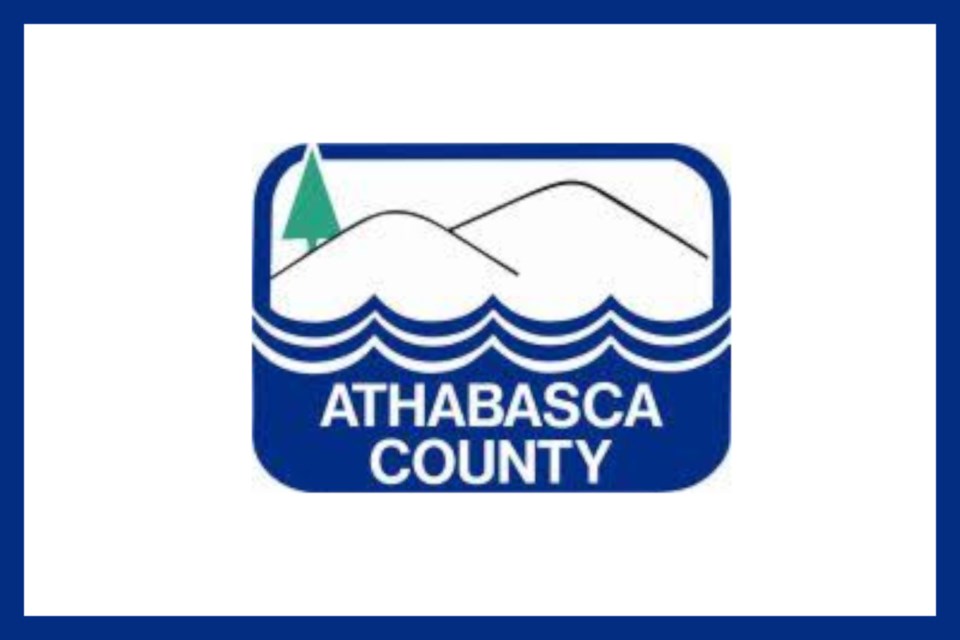ATHABASCA — Ratepayers in Athabasca County will see a two per cent increase on their tax bill this year, as the municipality records a near $1M deficit.
At their Feb. 25 regular meeting councillors approved the 2021 operating and capital budgets, alongside projections for the years 2022-2025. The two per cent increase will mostly go toward policing, which were costs downloaded from the provincial government, while maintaining current services and infrastructure.
“Our top priority was to maintain our roads, so they are in the best possible condition for agriculture, industry, schools, and residential use,” said reeve Larry Armfelt March 6. “Our communities and economy depend on them.”
Given numbers ranging from a one per cent increase that would see tax revenues rise by $205,332, to a five per cent increase showing an increase of $1,026,660, council chose the two per cent figure recommended by administration. The county will bring in $410,664 which will cover the growing requisition from the Alberta government for policing costs.
“Policing costs for 2021 have increased substantially to $304,377 with additional increases to come in each of the next two years,” Armfelt said. “These costs will remain whether the RCMP retains its contract, or if the province negotiates a different arrangement.”
Additional costs for the upcoming municipal election and unpaid taxes from oil and gas companies in Athabasca County also impacted the budget.
“(Because) 2021 is a municipal election year, part of our focus in creating this budget was to provide certainty for the next council that normal county operations can continue,” he added.
Operational budget highlights
There will be no increases for staff wages or council compensation in 2021 and $650,000 from the federal and provincial government Municipal Operating Support Transfer (MOST) grant will be utilized, even with significant decreases in travel and meeting expenses. Changes to the Family and Community Support Services (FCSS) budget also reflected the changes in the new provincial agreements.
“Throughout the years we have tried to make small, incremental increases instead of large, single increases,” said Armfelt. “This approach helps us keep pace with cost of living increases and helps to maintain services to residents.”
Capital budget highlights
Athabasca County is planning capital expenditures of $7.9 million for road construction divided up between the divisions for a total cost of $2,227,500. Road projects — three new and one carried over from 2020 — will cost an estimated $1,044,889; bridge rehabilitation comes in at $3,459,700 and costs of replacing equipment are estimated at $1,198,000.
Funding for the projects will come from an estimated $5,481,984 from external sources like federal and provincial grants, leaving the county to invest $2,249,105 and making up the shortfall of $199,000 with asset disposals.
Budget summary
Projected revenue from property taxes comes to $20,934,862, plus an additional $235,000 in penalties and costs for total revenue of $21,178,862.
For expenditures, little has changed except an addition of $2M for a landfill project, with total expenses tallied at $25,551,590, resulting in a $994,138 deficit that will be offset by add back depreciation of $5,627,795 and $1M from reserve funding, leaving a surplus of $5,862.
Mileage and subsistence for councillors were reduced by $10,000 and $25,000 respectively in reaction to the ongoing pandemic and registration fees for conferences was lowered from $28,000 to $15,000, but $10,000 was budgeted for updating council laptops due to the election.
Grants for local organizations like the Magnificent River Rats Festival Society, Portage College, and community events like Christmas or Halloween was reduced by just over 35 per cent to $27,200 and $15,000 was budgeted for election expenses.
In other areas, council chose to make some changes to help offset expenses as well, like reducing the Agricultural Services Board expenditures from the three-year average of $59,057 to $15,000 with no increase in salary allocation over the next three years.
Tourism and Economic Development (TED) got a lot of attention with a 74 per cent decrease in board expenses; a 100 per cent decrease for mileage and subsistence, and reducing registration fees, vehicle rent, professional development, conference and trade shows significantly with the largest from $50,000 to $1,200 for marketing, all to offset a 913 per cent increase to new initiatives — from $8,000 to $81,000. The 2021 budget for TED is projected to still come in at less than the 2020 budget by almost $60,000.
At the end of the day however, the budget is very much a reaction to the pandemic, Armfelt said.
“The pandemic was a major challenge in every category of our 2021 budget deliberations.”


